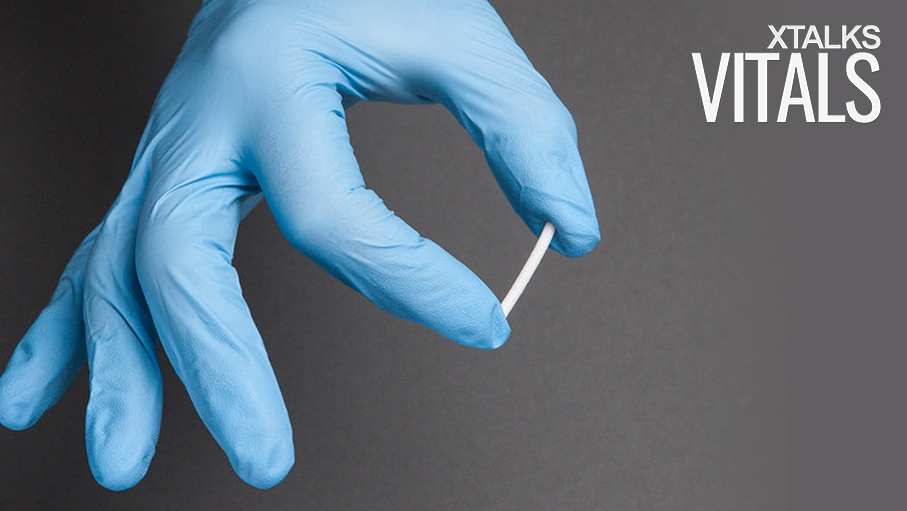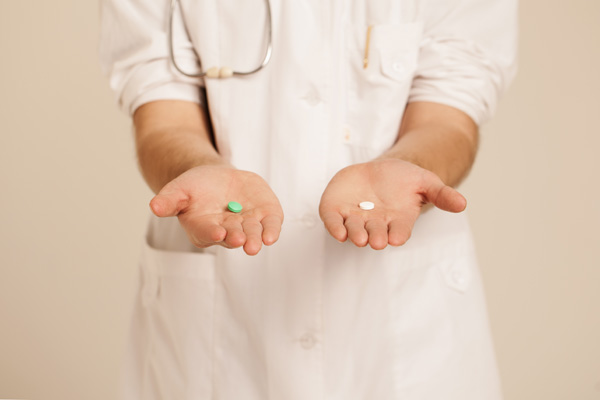Chronic pain patients with specific brain anatomies and psychological characteristics may respond just as well to a placebo as they would to a powerful painkiller, according to new research published in the journal Nature Communications. But the real surprise is that patients can be told they’re being given a placebo without dampening their response to treatment.
“Their brain is already tuned to respond,” said senior study author A. Vania Apkarian, professor of physiology at Northwestern University Feinberg School of Medicine. “They have the appropriate psychology and biology that puts them in a cognitive state that as soon as you say, ‘this may make your pain better,’ their pain gets better.”
The placebo effect is well-characterized in clinical research and can be challenging to overcome when an investigational treatment needs to show superiority over the placebo arm in order to move on to the next stage of development. While the phenomenon is not fully understood, it appears to be getting stronger, and Apkarian and his team found they were able to accurately predict which patients were more likely to respond to placebo dosing based on anatomical and psychological characteristics of the brain.
“You can tell them, ‘I’m giving you a drug that has no physiological effect but your brain will respond to it,’” said Apkarian. “You don’t need to hide it. There is a biology behind the placebo response.”
The Northwestern study involved 60 patients with chronic back pain who were randomly assigned to the first group, who were given a drug or placebo, or the second control group, who were not given any treatment during each site visit. Patients in the treatment arm did not know whether they were receiving the drug or the placebo.
Using MRI, the researchers sought to characterize any similarities in the brains of chronic pain patients who responded to the placebo. They found that patients who reported lower pain as a result of the placebo showed several similarities, including a larger right side of their emotional brain compared to the left, and a more developed cortical sensory area. They also showed several consistent psychological differences compared to the non-placebo responders, including emotional self-awareness, sensitivity and mindfulness.
RELATED: Another Reason Not to Prescribe Opioids for Chronic Pain: OTC Painkillers are More Effective
If the findings can be substantiated in further studies, there could be many benefits to prescribing patients placebo pills as opposed to those containing pharmaceutical active ingredients. For one, most drugs – particularly certain painkillers – carry the risk of side effects. Opioids are the epitomic example of this as they are both highly-effective at treating pain and highly-addictive and habit-forming.
Another benefit of placebo treatment comes in the form of lower healthcare costs as sugar pills are infinitely less expensive to produce compared to active ingredient-containing drugs.
“It’s much better to give someone a non-active drug rather than an active drug and get the same result,” Apkarian said. “Most pharmacological treatments have long-term adverse effects or addictive properties. Placebo becomes as good an option for treatment as any drug we have on the market.”
However, there are almost certainly limits to the types of conditions and patients that could be treated using sugar pills alone, which should be welcome news to the multi-billion dollar pharmaceutical industry responsible for developing new drugs. In this case, Apkarian still says that this better understanding of the placebo effect could be beneficial in reducing – or even eliminating – its impact on clinical trials. Patients predicted to have a stronger response to a placebo could be excluded from trial enrollment, helping to control that variable.
“Drug trials would need to recruit fewer people, and identifying the physiological effects would be much easier,” Apkarian said. “You’ve taken away a big component of noise in the study.”
Whether sugar pills will be widely adapted in clinical practice as the next greatest painkiller has yet to be seen. But there’s no denying the implications of the small study on pain management, which will inevitably need to be tested in larger trials.
“Clinicians who are treating chronic pain patients should seriously consider that some will get as good a response to a sugar pill as any other drug,” Apkarian said. “They should use it and see the outcome. This opens up a whole new field.”












Join or login to leave a comment
JOIN LOGIN